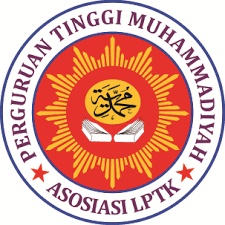Implementation of Flipped Classroom in Students' Mathematical Problem Solving Ability
Abstract
This research aims to determine the impact of flipped classroom learning models on students' problem-solving abilities. The research design used is a pseudo-experiment with a posttest-only control group. This study's population consisted of grade VIII students from SMP Serang for the 2021/2022 school year. Samples were determined using cluster random sampling techniques to obtain experimental and control classes. Data were gathered by administering a mathematical problem-solving ability test to students in the form of a description test at the end of the study. Based on posttest data, students' average mathematical problem-solving ability using a flipped classroom approach was 76.97 points. In comparison, students' average mathematical problem-solving ability using traditional learning was 64.33 points. The results of data analysis using a t-test with a 5% significance level revealed that the tcount is higher than ttable. This means that students who participate in flipped classroom learning have better problem-solving skills than students who use traditional learning models. As a result, flipped classroom model learning affects students' mathematical problem-solving abilities.
References
Adhyan, A. R., & Sutirna. (2022). Kemampuan Pemecahan Masalah Matematis Siswa MTs Pada Materi Himpunan. Jurnal Pembelajaran Matematika Inovatif, 5(2), 451–462. https://doi.org/10.22460/jpmi.v5i2.451-462
Andhita, R., & Adirakasiswi, A. G. (2021). Analisis Kemampuan Pemecahan Masalah Matematis Siswa SMA. JMPI: Jurnal Pembelajaran Matematika Inovatif, 4(4), 835–842. https://doi.org/10.22460/jpmi.v4i4.835-842
Azizah, G. N., & Sundayana, R. (2018). Kemampuan Pemecahan Masalah Matematis Dan Sikap Siswa Terhadap Model Pembelajaran Kooperatif Tipe Air Dan Probing-Prompting. Mosharafa: Jurnal Pendidikan Matematika, 5(3), 305–314. https://doi.org/10.31980/mosharafa.v5i3.285
Bhagat, K. K., Chang, C. N., & Chang, C. Y. (2016). The impact of the flipped classroom on mathematics concept learning in high school. Educational Technology and Society, 19(3), 134–142.
Damayanti, H. N., & Sutama, S. (2016). Efektivitas Flipped Classroom Terhadap Sikap Dan Ketrampilan Belajar Matematika Di Smk. Manajemen Pendidikan, 11(1), 2. https://doi.org/10.23917/jmp.v11i1.1799
Fatimah, A. E. (2016). Peningkatan Kemampuan Pemecahan Masalah Matematis Dan Kemandirian Belajar Siswa SMK Negeri 1 Percut Sei Tuan Melalui Pendekatan Differentiated Instruction. MES (Journal of Mathematics Education and Science), 2(1), 11–23.
Fernández-MartÃn, F. D., Romero-RodrÃguez, J. M., Gómez-GarcÃa, G., & Navas-Parejo, M. R. (2020). Impact of the flipped classroom method in the mathematical area: A systematic review. Mathematics, 8(12), 1–11. https://doi.org/10.3390/math8122162
Igirisa, N. (2017). Pengaruh Model Flipped Learning Terhadap Hasil Belajar Matematika Ditinjau Dari Gaya Belajar Siswa. JPs: Jurnal Riset Dan Pengembangan Ilmu Pengetahuan, 2(1), 80–84.
Imannia, D. (2022). Kemampuan Pemecahan Masalah Matematis Siswa Pada Materi Program Linear. Inovasi Matematika (Inomatika), 4(1), 19–30. https://doi.org/10.35438/inomatika.v4i1.279
Izzati, N. (2016). Meningkatkan Kemampuan Mahasiswa dalam Menyusun RPP melalui Penerapan Model Pembelajaran Berbasis Portofolio. Jurnal Euclid, 4(1), 659–674.
Juniantari, M., Pujawan, I. G. N., & Widhiasih, I. D. A. G. (2018). Pengaruh Pendekatan Flipped Classroom Terhadap Pemahaman Konsep Matematika Siswa SMA. Journal of Education Technology, 2(4), 197–204.
Lo, C. K., Hew, K. F., & Chen, G. (2017). Toward a set of design principles for mathematics flipped classrooms: A synthesis of research in mathematics education. Educational Research Review, 22, 50–73. https://doi.org/10.1016/j.edurev.2017.08.002
Mayasari, & Rosyana, T. (2019). Pengaruh Kemandirian Belajar terhadap Kemampuan Pemecahan Masalah Matematis Siswa SMP. Journal of Medives : Journal of Mathematics Education IKIP Veteran Semarang, 3(1), 11. https://doi.org/10.31331/medivesveteran.v3i1.646
O’Flaherty, J., & Phillips, C. (2015). The use of flipped classrooms in higher education: A scoping review. Internet and Higher Education, 25, 85–95. https://doi.org/10.1016/j.iheduc.2015.02.002
Rahayu, D. V., & Afriansyah, E. A. (2015). Matematik Siswa Melalui Model Pembelajaran Pelangi Matematika. Mosharafa: Jurnal Pendidikan Matematika, 5(1), 29–37. http://www.e-mosharafa.org/index.php/mosharafa/article/view/mv4n1_4/201
Saputra, M. E. A., & Mujib, M. (2018). Efektivitas Model Flipped Classroom Menggunakan Video Pembelajaran Matematika terhadap Pemahaman Konsep. Desimal: Jurnal Matematika, 1(2), 173. https://doi.org/10.24042/djm.v1i2.2389
Sariningsih, R., & Purwasih, R. (2017). Pembelajaran Problem Based Learning Untuk Meningkatkan Kemampuan Pemecahan Masalah Matematis Dan Self Efficacy Mahasiswa Calon Guru. JNPM (Jurnal Nasional Pendidikan Matematika), 1(1), 163. https://doi.org/10.33603/jnpm.v1i1.275
Utami, R. W., & Wutsqa, D. U. (2017). Analisis kemampuan pemecahan masalah matematika dan self-efficacy siswa SMP negeri di Kabupaten Ciamis. Jurnal Riset Pendidikan Matematika, 4(2), 166. https://doi.org/10.21831/jrpm.v4i2.14897
Wei, X., Cheng, I. L., Chen, N. S., Yang, X., Liu, Y., Dong, Y., Zhai, X., & Kinshuk. (2020). Effect of the flipped classroom on the mathematics performance of middle school students. Educational Technology Research and Development, 68(3), 1461–1484. https://doi.org/10.1007/s11423-020-09752-x
Yulietri, F., Mulyoto, & S, L. A. (2015). Model flipped classroom dan discovery learning pengaruhnya terhadap prestasi belajar matematika ditinjau dari kemandirian belajar. Jurnal Teknodika, 13(2), 5–17. https://jurnal.fkip.uns.ac.id/index.php/teknodika/article/view/6792
Zulkarnain, I., & Budiman, H. (2019). Pengaruh Pemahaman Konsep Terhadap Kemampuan Pemecahan Masalah Matematika. Research and Development Journal of Education, 6(1), 18. https://doi.org/10.30998/rdje.v6i1.4093

























